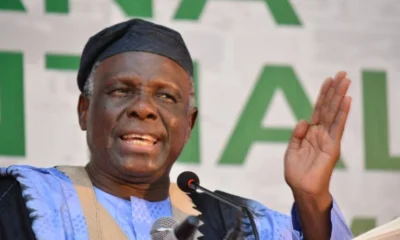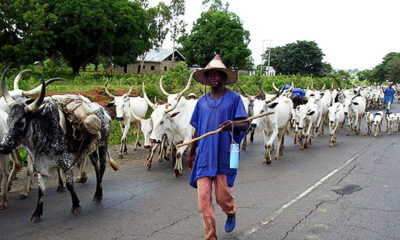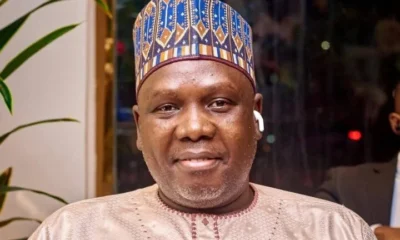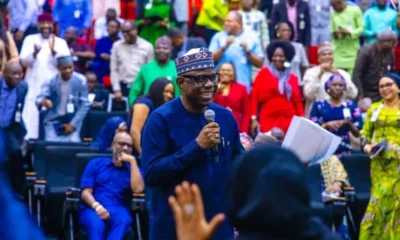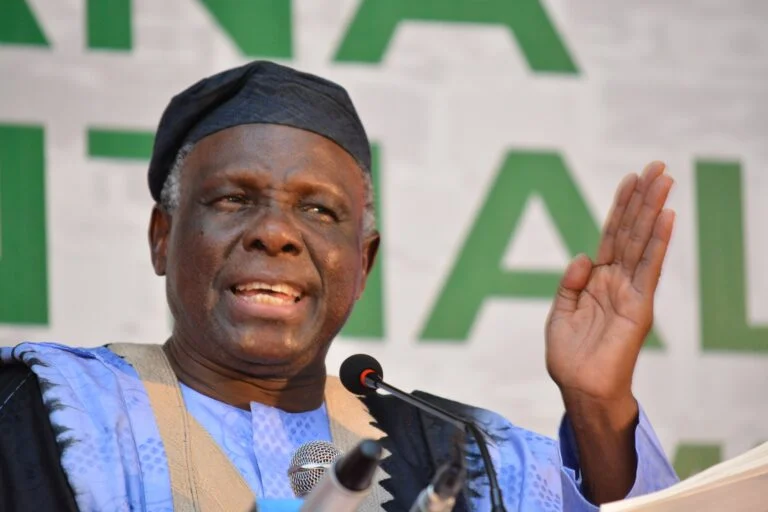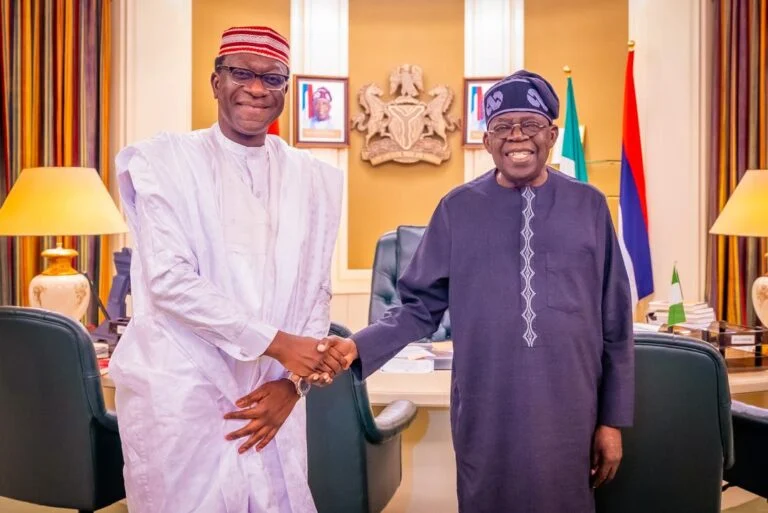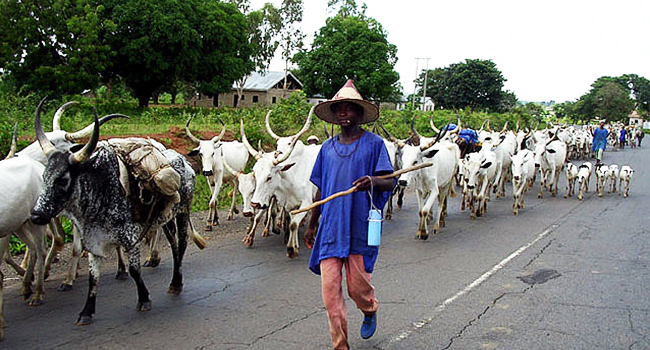Point of Sale terminals handled transactions worth N223.27tn in 2024, representing a significant increase from the N110.35tn recorded in 2023.
This is according to data from the Central Bank of Nigeria’s quarterly statistical bulletin, which shows a continued migration from Automated Teller Machines to Point of Sale platforms for financial transactions across the country.
The total number of POS transactions rose from 9.85 billion in 2023 to 13.08 billion in 2024, indicating a 32.7 per cent increase year-on-year. In contrast, ATM transaction volume remained largely flat, rising marginally from 1.012 billion to 1.022 billion transactions.
The value of ATM withdrawals in 2024 was N29.12tn, a slight increase from N28.21tn in the previous year, further confirming a slowdown in cash withdrawal growth relative to digital payment usage. Monthly data from the apex bank shows a consistent rise in POS transaction values throughout 2024.
In January, POS terminals processed N11.50tn, more than double the N5.28tn recorded in January 2023. ATM withdrawals fell sharply in the same month, declining from N3.24tn to N2.15tn year-on-year. In February 2024, POS transaction value rose to N12.46tn, a 69 per cent increase from N7.38tn in the corresponding month of the previous year.
The volume of POS transactions dropped slightly month-on-month but remained significantly above the 2023 figures. ATM withdrawals declined to N1.72tn from N1.77tn year-on-year. By March, POS terminals recorded N14.73tn in transaction value, up from N10.62tn in March 2023.
While POS transaction volume crossed the one billion mark, ATM usage dipped further, with withdrawals totalling N1.60tn compared to N2.16tn in the same month of the previous year.
April continued the trend with POS transaction value of N13.74tn, a rise from N8.55tn recorded in April 2023.
ATM withdrawals remained subdued at N1.81tn, lower than N2.41tn recorded the previous year. May followed with a POS transaction value of N13.91tn, a 67.3 per cent increase from N8.30tn in May 2023. ATM withdrawals stood at N2.49tn, slightly below the previous year’s N2.62tn.
June saw one of the most significant surges, with POS value hitting N19.57tn, more than double the N8.31tn recorded in June 2023. ATM usage by value remained virtually unchanged at N2.45tn despite a rise in volume to 113.17 million, suggesting a higher frequency of smaller withdrawals.
In July 2024, ATM withdrawals rose to N3.21tn, up from N2.24tn in July 2023, while POS value hit N15.24tn, reflecting an 83 per cent increase year-on-year. In August, POS transactions surged further to N18.90tn, more than double the N9.10tn recorded in August 2023. ATM withdrawals also saw a modest increase to N2.21tn, up from N2.14tn in the previous year.
September recorded N19.69tn in POS transaction value, compared to N9.40tn in 2023, showing a 109.6 per cent increase. ATM value increased modestly to N2.30tn from N1.99tn year-on-year. In October, POS usage rose to N22.27tn from N10.60tn in October 2023, while ATM value dropped to N1.93tn from N2.54tn, marking the lowest ATM transaction value for the year.
November posted one of the highest spikes in POS value at N29.42tn, up from N11.28tn in the same month of 2023, a rise of over 160 per cent. ATM withdrawals rebounded to N3.35tn, their highest for the year. In December, POS transaction value peaked at N31.84tn, compared to N13.20tn in December 2023. ATM usage also reached its highest point at N3.91tn, up from N2.43tn year-on-year.
The data reflect the continued expansion of POS terminals, which are increasingly accessible across urban and rural communities through agency banking networks. While ATM usage remains relevant, the figures suggest a diminishing reliance on physical cash withdrawals from ATMs for everyday transactions.
The increasing preference for POS reflects a shift towards convenience, speed, and broader financial access. However, the rapid growth also brings to the fore issues such as fraud and transaction charges.
The surge in POS transactions occurred despite the arbitrary increase in charges common towards the end of the year. In December 2024, POS agents hiked charges by about 100 per cent, collecting up to N200 per N5,000 withdrawal.
Many Nigerians were at the mercy of POS operators, as most banks’ ATMs were empty. Inside the banks, there was no reprieve as most of the banks turned their customers back for lack of cash, and in rare cases where the customers were able to get cash, they were limited to N10,000 or N20,000 withdrawals.
This happened despite a warning to the banks by the CBN that any bank found not dispensing cash via ATMs would be sanctioned. The CBN earlier sanctioned nine Deposit Money Banks with fines totalling N1.35bn for failing to ensure cash availability via Automated Teller Machines during the festive season.
Each of the banks was fined N150m following spot checks that revealed non-compliance with the apex bank’s cash distribution guidelines. The affected banks include Fidelity Bank Plc, First Bank Plc, Keystone Bank Plc, Union Bank Plc, Globus Bank Plc, Providus Bank Plc, Zenith Bank Plc, United Bank for Africa Plc, and Sterling Bank Plc.
The fines will be directly debited from the banks’ accounts with the CBN. Further checks by The PUNCH showed that the high POS transaction charge persists even after the festive period.
Earlier, POS operators attributed the increase to severe cash scarcity caused by banks rationing withdrawals and the implementation of the Electronic Money Transfer Levy of N50 by the Federal Inland Revenue Services, charged on any electronic inflow of N10,000 and above.
The stamp duty or electronic money transfer levy is a single, one-off charge of N50 on electronic receipt or transfer of money deposited in any commercial money bank or financial institution on any type of account on sums of N10,000 and above.
On December 1, 2024, the Federal Government began enforcing the policy across fintech platforms such as OPay, Moniepoint, Kuda, and others. The fintech operators dominate about 70 per cent of the POS agent market.
Also, with the surge in POS transactions, there have been rising cases of fraud through this payment system, among other concerns. The prevalence of fraud and forgery in Nigeria’s payment system has shown a significant shift in the first quarter of 2024, with POS transactions experiencing the highest increase in fraudulent activities.
According to the Fraud and Forgeries Report in Nigerian Banks for the first quarter of 2024 by FITC, POS fraud cases surged by 31.12 per cent in Q1 2024. In Q4 2023, there were 2,683 reported cases of fraud associated with POS terminals. However, this number escalated to 3,518 cases by Q1 2024.
POS fraud cases made up 30.67 per cent of the total fraud cases (11,472) recorded in the quarter under review. Also, fraud cases involving computers, mobile devices, and point-of-sale systems accounted for the majority of fraudulent activities recorded in Nigeria during the second quarter of 2024.
This led the CBN to introduce a daily cash-out transaction limit of N100,000 per individual customer for Point-of-Sale agents. According to the apex bank, this was part of new measures to advance the cashless policy in Nigeria, as well as combat fraud.
The CBN stated that agents are restricted to a cumulative cash-out limit of N1.2m per day, while customers face a maximum cash withdrawal limit of N500,000 per week. To ensure accountability, the CBN has mandated that all agency banking transactions must be conducted exclusively through float accounts maintained with the principal institutions.
Also, all agent banking terminals must be connected to the Payments Terminal Service Aggregator, and daily transaction reports, including withdrawal limits and float account balances, must be electronically submitted to the Nigerian Inter-Bank Settlement System using a reporting template provided by the CBN.
The circular emphasised that principals of agent banking operations must monitor accounts linked to agents’ Bank Verification Numbers to detect any unauthorised activities outside the designated float accounts.
It further reiterated that principals would be held fully responsible for the actions and omissions of their agents in relation to banking services. To ensure compliance, the CBN announced plans to conduct periodic oversight and impromptu backend configuration checks.
Any breaches of the directive, the circular warned, would attract penalties, including monetary fines and administrative sanctions.

 BIG STORY3 days ago
BIG STORY3 days ago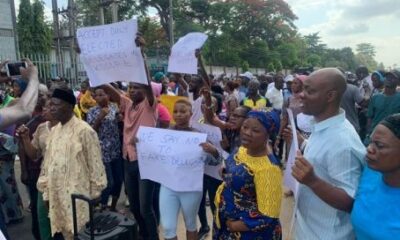
 BIG STORY3 days ago
BIG STORY3 days ago
 BIG STORY3 days ago
BIG STORY3 days ago
 BIG STORY2 days ago
BIG STORY2 days ago
 BIG STORY21 hours ago
BIG STORY21 hours ago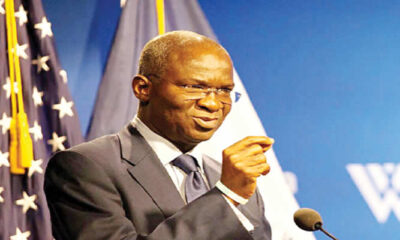
 BIG STORY24 hours ago
BIG STORY24 hours ago
 BIG STORY3 days ago
BIG STORY3 days ago
 BIG STORY3 days ago
BIG STORY3 days ago







